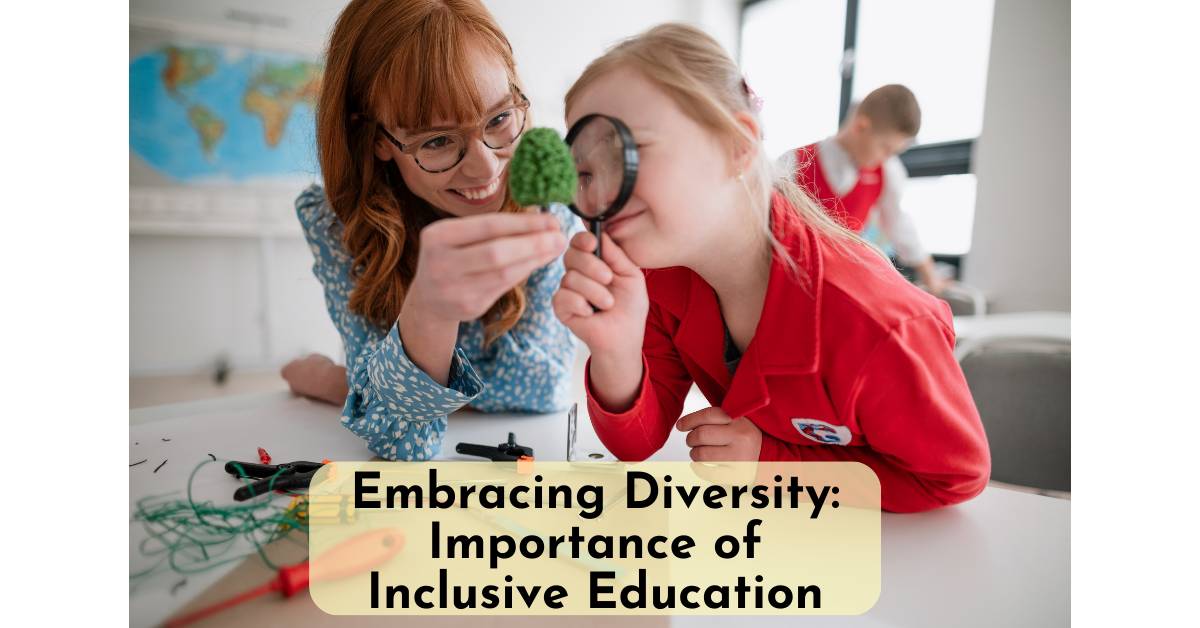Key Takeaways
- Inclusive education ensures equal access to quality education for all students.
- It promotes an environment of acceptance, respect, and equity.
- Inclusive education breaks down barriers and enables full participation in the learning process.
- It fosters social integration, empathy, and creates a more inclusive society.
- Inclusive education leads to higher academic achievement, improved social skills, and increased self-esteem for students with disabilities.
Breaking Down Barriers in Education
Inclusive education is a transformative approach that aims to remove barriers to learning and participation for all students. By shifting towards a more flexible and accommodating environment, inclusive education strategies ensure that every student, regardless of their abilities or differences, has an equal opportunity to access quality education and reach their full potential. Inclusive education goes beyond the traditional classroom structure and embraces diversity in all its forms. It recognizes that each student has unique learning needs and provides appropriate support to help them succeed. By promoting inclusive education, we create an environment where all students can fully participate in the learning process, engage with their peers, and develop vital skills for lifelong learning.Promoting Inclusive Education Strategies
- Universal Design for Learning: Inclusive classrooms incorporate the principles of Universal Design for Learning (UDL), which focuses on providing multiple pathways for students to access and engage with the curriculum. This approach ensures that instructional materials, assessments, and classroom activities are designed to cater to a wide range of learning styles and abilities.
- Collaborative Teaching: Inclusive education encourages collaboration among teachers with diverse expertise, such as special education teachers, subject specialists, and support staff. By working together, they can develop customized strategies and interventions to meet the individual needs of students, ensuring that no one is left behind.
- Individualized Education Plans (IEPs): IEPs are personalized plans developed for students with disabilities to outline their learning goals, accommodations, and support services. Inclusive education ensures that these plans are implemented effectively, allowing students to receive the necessary support and modifications to succeed in the classroom.
- Peer Support Programs: Inclusive education fosters relationships and empathy among students by implementing peer support programs. These programs pair students with and without disabilities, allowing them to learn from each other, develop friendships, and promote inclusivity within the school community.
“Inclusive education is not about simply placing students with disabilities in mainstream classrooms. It is about creating an environment where all students can thrive, learn from each other, and embrace diversity.” – Dr. Lisa Miller, Education Consultant
| Inclusive Education Strategies | Benefits |
|---|---|
| Universal Design for Learning | Enhances engagement and learning outcomes for all students |
| Collaborative Teaching | Promotes effective collaboration among educators and improves instructional practices |
| Individualized Education Plans (IEPs) | Ensures personalized support and accommodations for students with disabilities |
| Peer Support Programs | Fosters social integration, empathy, and inclusivity within the school community |
Fostering Social Integration and Empathy
Inclusive education plays a vital role in fostering social integration and empathy among students. When students with diverse backgrounds and abilities learn together, they develop a deeper understanding and appreciation for one another. Inclusive classrooms promote collaboration, communication, and respect, creating a more inclusive and accepting society. By embracing students of all abilities, inclusive education breaks down societal barriers that often lead to exclusion and segregation. In an inclusive classroom, students with disabilities are given the opportunity to engage with their peers, and in turn, their non-disabled peers gain valuable insights and learn to appreciate and value individual differences. Inclusive education cultivates a supportive and inclusive culture that celebrates diversity and empowers students to become advocates for inclusion. It encourages students to challenge stereotypes and biases, fostering empathy and a sense of belonging for all.Ellen, a teacher from New York, shares her experience with inclusive education: “When I introduced inclusive practices in my classroom, I witnessed remarkable transformations among my students. They developed empathy and understanding, built lasting friendships, and became more accepting of each other. Inclusive education not only benefits students with disabilities, but it also enriches the lives of all students.”Moreover, research indicates that inclusive education positively impacts the social-emotional development and overall well-being of students. It fosters the development of essential life skills, such as communication, problem-solving, and conflict resolution, which are valued not only in the classroom but also in the wider society.
Breaking Down Stereotypes through Collaboration
Collaborative learning is a fundamental aspect of inclusive education. It encourages students to work together, pooling their diverse skills and perspectives to achieve common goals. Through collaborative projects and activities, students learn to appreciate the unique strengths and contributions of each individual, challenging preconceived notions and stereotypes about disabilities. Furthermore, inclusive education provides opportunities for students to engage in meaningful interactions with their peers through group work, discussions, and classroom activities. These interactions create an inclusive learning environment where students can learn from one another, develop empathy, and build social connections that extend beyond the classroom. As a result of these interactions, students gain a deeper understanding of the challenges faced by their peers with disabilities, breaking down barriers and paving the way for a more inclusive and empathetic society.Enhancing Academic Achievement through Inclusive Education
Inclusive education has numerous advantages that positively impact academic achievement. Research consistently demonstrates that inclusive classrooms not only provide equal access to education but also contribute to higher academic outcomes. Students with disabilities benefit from inclusive education practices by being actively involved in the learning process. They develop valuable social skills and experience increased self-esteem, leading to improved academic performance. “Inclusive education provides a rich learning experience that nurtures critical thinking, problem-solving, and creativity,” says Dr. Emily Rodriguez, a renowned education expert.“Inclusive classrooms create an environment where students learn from one another, challenge assumptions, and appreciate different perspectives. This fosters a culture of collaboration, respect, and deeper learning,”
- Inclusive education promotes collaboration between students with diverse backgrounds and abilities, enhancing their academic journey.
- Studies have shown that inclusive classrooms lead to improved test scores, academic engagement, and overall educational outcomes.
- When students work together in inclusive settings, they enhance their problem-solving skills and gain a deeper understanding of subjects.
- Inclusive education encourages active participation, boosting students’ motivation, and promoting a love for learning.
| Study | Findings |
|---|---|
| Cruz et al. (2020) | Inclusive education leads to improved math skills and overall academic performance in students with disabilities. |
| Smithson et al. (2019) | Students in inclusive classrooms demonstrate higher reading comprehension levels compared to those in non-inclusive settings. |
| Jackson & White (2018) | Inclusive education positively impacts social-emotional development, resulting in improved behavior and academic engagement. |
Supporting Teachers and Communities in Implementing Inclusive Education
To successfully implement inclusive education, it is crucial to have well-trained teachers, adequate resources, and strong community support. Teachers play a pivotal role in creating inclusive classrooms and fostering an environment where every student feels valued and included. Professional Development and Training: Teachers need ongoing professional development to acquire the necessary skills and strategies for effectively meeting the diverse needs of their students. By implementing inclusive teaching practices, teachers can cater to the individual strengths and challenges of each student, creating an inclusive learning experience that promotes equal opportunities for success. Continuous training can provide teachers with the knowledge and tools to adapt teaching methodologies, differentiate instruction, and create a supportive learning environment. This includes incorporating assistive technologies, utilizing Universal Design for Learning principles, and implementing collaborative learning strategies that encourage cooperation and peer support. Community Involvement: Inclusive education requires support from the broader community. By involving parents, caregivers, and local organizations, schools can create a collaborative network of support for students with diverse needs. Community engagement initiatives, such as workshops, parent-teacher partnerships, and mentoring programs, contribute to a unified approach in implementing inclusive education. Community involvement not only fosters a sense of belonging and acceptance for all students, but it also encourages stakeholders to actively participate in decision-making processes and advocate for inclusive policies within the education system. Inclusive Education Policies: Implementing inclusive education necessitates the development and implementation of inclusive policies at both the local and national levels. These policies should prioritize the removal of barriers to education, such as physical accessibility, discriminatory practices, and inadequate resources. Inclusive education policies should focus on providing adequate funding to support the implementation of inclusive practices, ensuring that schools have the necessary resources, materials, and assistive technologies to meet the diverse needs of their students.Benefits of Supporting Teachers and Communities in Implementing Inclusive Education
By providing teachers with professional development opportunities and engaging the broader community, the implementation of inclusive education can yield numerous benefits:- Improved student engagement and academic performance
- Enhanced social and emotional development for students with disabilities and their peers
- Increased cultural and social awareness among students
- Greater acceptance and empathy towards individuals with disabilities
- Development of a more inclusive and equitable society
| Benefits of Supporting Teachers and Communities in Implementing Inclusive Education |
|---|
| Improved student engagement and academic performance |
| Enhanced social and emotional development for students with disabilities and their peers |
| Increased cultural and social awareness among students |
| Greater acceptance and empathy towards individuals with disabilities |
| Development of a more inclusive and equitable society |
Conclusion: The Power of Inclusive Education
Inclusive education is a catalyst for positive change in society. By embracing diversity and breaking down barriers, it creates an environment where all students can thrive. The importance of inclusive education cannot be overstated as it benefits not only students with disabilities but also enhances the learning experience for all. One of the key benefits of inclusive education is the promotion of empathy and understanding among students. When children of diverse backgrounds and abilities learn together, they develop a deeper appreciation for one another’s strengths and challenges. This fosters a sense of compassion and empathy, creating a more inclusive and accepting society. Inclusive education also enhances academic achievement. Research consistently shows that inclusive classrooms positively impact academic outcomes, social skills, and self-esteem for students with disabilities. By providing a supportive and inclusive learning environment, students are empowered to reach their full potential and develop critical thinking, problem-solving, and creative skills. Investing in and promoting inclusive education is crucial for a more inclusive and equitable world. It not only prepares students to become active and empathetic members of society but also paves the way for a more accepting and inclusive future. By embracing the power of inclusive education, we can create a society where every individual is valued and has equal access to quality education.FAQ
What is inclusive education?
Inclusive education ensures that all students, regardless of their abilities or differences, have equal access to quality education. It promotes an environment of acceptance and respect, benefiting individuals with disabilities and creating a more equitable learning environment for all students.
What are the benefits of inclusive education?
Inclusive education removes barriers to learning and participation. It shifts towards a more flexible approach that accommodates diversity and provides appropriate support for students with disabilities. This approach allows all students to fully participate in the learning process and reach their full potential.
How does inclusive education foster social integration and empathy?
Inclusive education plays a vital role in fostering social integration and empathy among students. When students with diverse backgrounds and abilities learn together, they develop a deeper understanding and appreciation for one another. Inclusive classrooms promote collaboration, communication, and respect, creating a more inclusive and accepting society.
What are the advantages of inclusive education for academic achievement?
Inclusive education has shown positive effects on academic achievement. Research consistently demonstrates that inclusive classrooms promote higher academic outcomes, improved social skills, and increased self-esteem for students with disabilities. Inclusive education provides a rich learning experience and promotes critical thinking, problem-solving, and creativity.
What is needed to implement inclusive education?
Implementing inclusive education requires well-trained teachers, adequate resources, and strong community support. Teachers play a crucial role in creating inclusive classrooms and need ongoing professional development to meet the diverse needs of students. Community involvement and inclusive policies are also essential to ensure the successful implementation of inclusive education.
Why is promoting inclusive education important?
Inclusive education is a catalyst for positive change in society. It embraces diversity, breaks down barriers, promotes empathy and understanding, and creates an environment where all students can thrive. Inclusive education benefits not only students with disabilities but also enhances the learning experience for all students, preparing them to become active and empathetic members of society. Investing in and promoting inclusive education is crucial for a more inclusive and equitable world.
Download free activities and teaching resources Click Here
You may also be interested in
How to Celebrate Student Achievement: Creative Ideas
Building Positive Classroom Culture with Engaging Activities
10 Tips to Boost Classroom Learning Strategies Effectively
10 Ways to Improve Professional Development for Teachers
Top 10 Simple Classroom Organization Ideas for Elementary Teachers
Exploring Modern Teacher Aids: Enhancing Classroom SuccessEmpowering Future Learners with Early Childhood Education
Source Links
- https://hapara.com/blog/diversity-in-the-classroom/
- https://www.linkedin.com/pulse/embracing-diversity-power-inclusive-education-folajogun-erinoso
- https://ctal.udel.edu/resources-2/inclusive-teaching/






